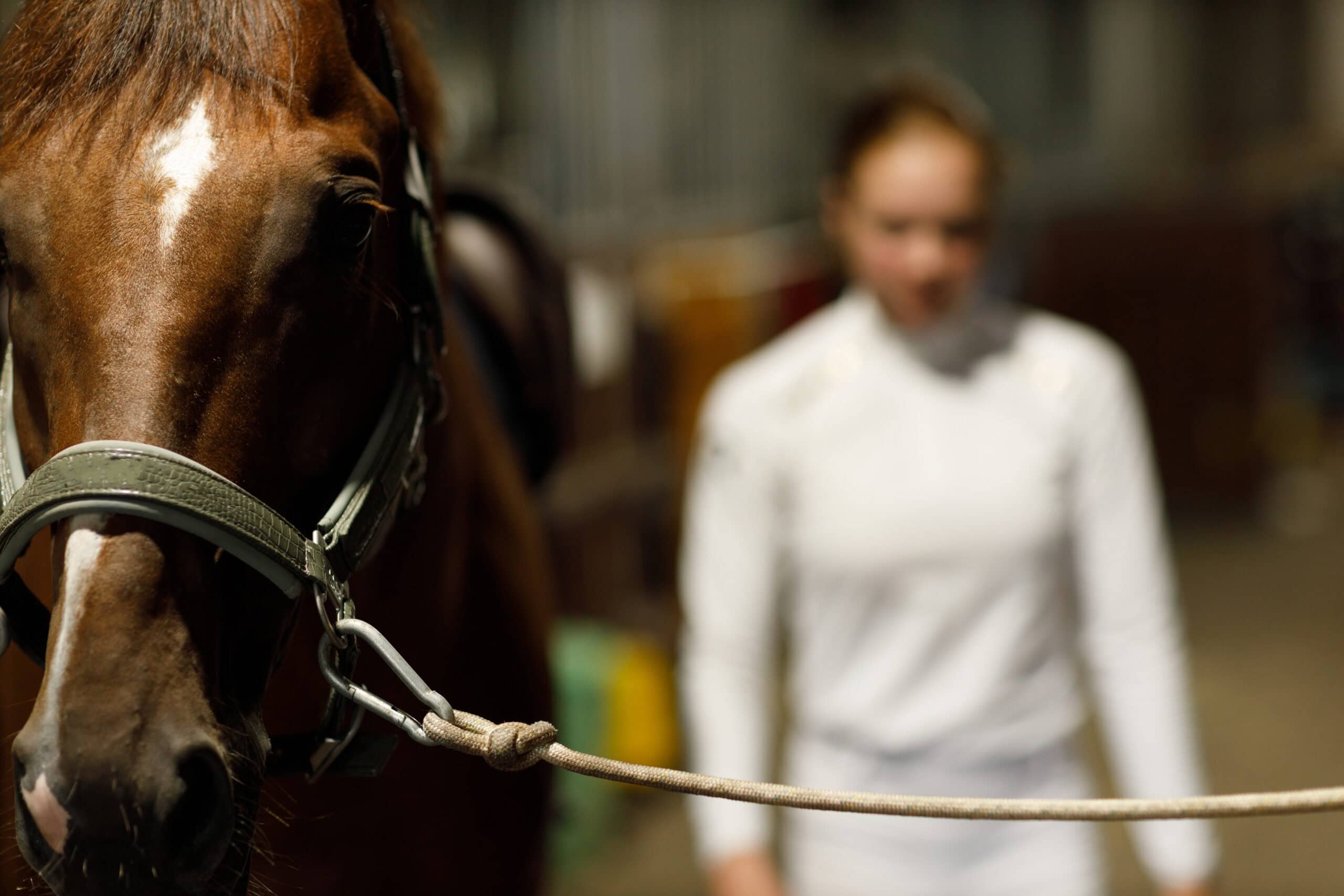Horse Training Disputes
Training disputes can cause problems for horse owners and trainers.


By Rachel Kosmal McCart
At Equine Legal Solutions, we frequently hear from horse owners who send their horses to a trainer and are dissatisfied with the results. Just as frequently, we hear from trainers with clients who are not paying them. Here are some tips for both sides to help avoid disputes.
Owners
Do Your Homework
When shopping for a trainer, most horse owners choose a trainer with a winning record who specializes in their discipline of choice. However, it is equally important to ensure your trainer will maintain your horse’s good disposition, health and soundness. For example, it is extremely important to visit a trainer’s barn and check out the horses to make sure they are being cared for properly, paying particular attention to weight, hair coat and hoof condition. Observe the trainer and his assistants working with the horses in their care — are they using training methods you feel comfortable with? Trust your gut instincts about what you observe — if you don’t get a good vibe from a particular barn, your horse probably won’t, either. Your potential trainer should also return your calls promptly and be responsive in answering your questions.
Listen to Your Trainer
When taking your horse to a trainer, you should set goals for your horse and discuss these goals with the trainer. For example, if you want your horse to be ready for the futurities in three months, you should tell your trainer directly about this goal and ask him for his honest opinion about whether your goal is realistic. If he tells you the horse is ill-suited to the discipline you have chosen, ask your trainer what he thinks the horse might excel at instead. If you are set on pursuing a particular discipline, and your horse isn’t well-suited for that discipline, ask your trainer whether he or she recommends you get a different horse. Sometimes, the best decision you can make, for both your happiness and your horse’s, is to sell a horse who isn’t happy in his job.
Follow up With Your Trainer
If your trainer is not providing you with regular reports, give him or her a call every few weeks to check on your horse’s progress. Ask your trainer how your horse is performing relative to the goals you have set. If your horse is not on track to meet your goals, discuss why those goals are not being met. Make sure you understand how much additional training and expense might be required to meet your goals. If possible, you should visit your horse and observe his training directly — not often enough to interfere with your trainer’s work, but often enough to get a feel for how your horse is progressing.
Trainers
Know Your Client’s Goals
Many, if not most, disputes between trainers and clients result from mismatched expectations. Clients are often emotionally invested in their horses and, therefore, might have unreasonable goals for them. At the outset of the training relationship, you should sit down with your client and discuss the client’s goals for the horse. If the goals are unrealistic, you should say so immediately and directly. If possible, offer suggestions for how the goals can be met. For example, perhaps you couldn’t get a shaggy horse ready for the halter ring in 30 days, but 90 days might be realistic. Setting expectations at the beginning of the relationship helps avoid disputes over bills later on, and it also helps protect your reputation as an honest professional.
Bill Your Client Regularly
Many trainers are so busy, especially during show season and breeding season, they neglect to bill their clients regularly. As a result, the client might receive one large bill after several months have passed. A gigantic bill invites the client to go over it and dispute items to get the total down. In addition, the client might not have a large amount of cash on hand and, thus, take a while to pay. Billing clients promptly, at least monthly, will help avoid payment disputes and improve your cash flow.
Itemize Your Invoices
In addition to favoring timely bills, clients favor bills that are detailed and give a sense of all the services that make up the total. This is especially true for bills that might seem large to your client. For example, a bill that simply says, “Training, showing and care, $1,500” gives a sense of far less value than an invoice that details each charge included in the total, down to the entry fees for each class in each show. Detailing your invoices also gives the impression of thoroughness, professionalism and honesty — you’re keeping careful track of your expenses and sharing them openly with your client.
Share this article

Written by: Rachel Kosmal McCart
Rachel Kosmal McCart is a lifelong horsewoman and the founder of Equine Legal Solutions, PC, an equine law firm based in the Portland, Oregon area. Rachel is a member of the New York, California, Oregon and Washington State bars and is admitted to practice before the U.S. District Court for the District of Oregon and the U.S. District Court for the Central District of California. Rachel currently competes in three-day eventing.








